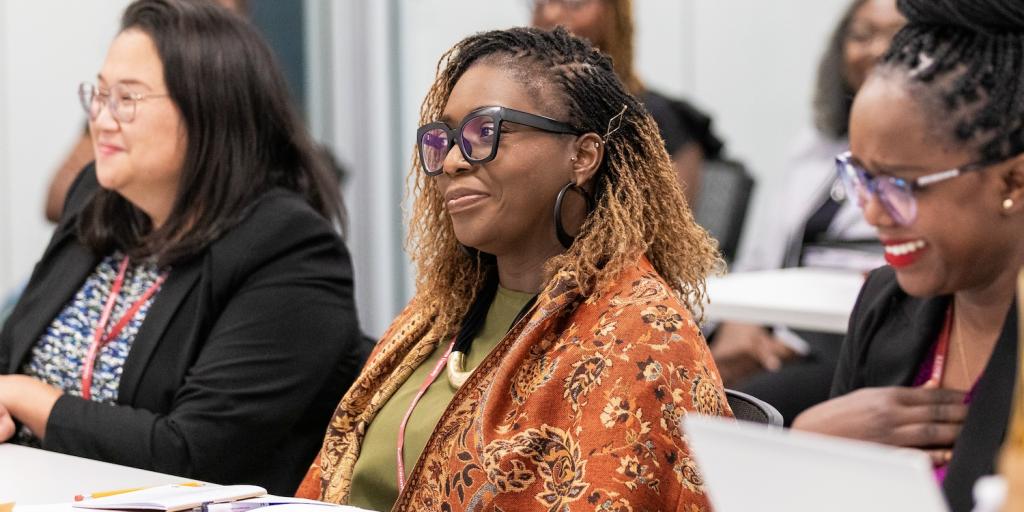

Upon completion of the PhD program, students will be able to:
- Demonstrate knowledge and competencies to identify, synthesize, critique, and apply scholarly literature pertaining to sound leadership theories and practices
- Demonstrate knowledge and competencies to identify, synthesize, critique, and apply scholarly literature pertaining to sound organizational theories and practices
- Demonstrate knowledge and competencies to critically discern sound research designs and methods from the literature
- Demonstrate in-depth knowledge and competencies to design a significant research project utilizing robust qualitative/quantitative/mixed-method research designs and methods
- Conduct and disseminate original research according to best conceptual, methodological, and ethical standards
- Demonstrate critical self-reflection and competencies of integrating faith, justice, and ethics in the context of leadership scholarship and practice
- Demonstrate skills and a commitment to ongoing scholarship and/or leadership through active service and thought leadership
A Missional Philosophy of Education:
The program supports Eastern University by building upon its mission of transformational education to include a student population that already occupies positions of influence in the organizations of our society. While Eastern will continue to teach and mold leaders for tomorrow and the mid-level leaders of today, the PhD in Organizational Leadership has been created primarily for those who are already exercising significant leadership roles in educational institutions, nonprofit organizations, corporations, and public sector agencies.
Education at Eastern University is predicated upon the university’s commitment to “the integration of faith, reason, and justice.” The following explication articulates the implications of such a commitment in the academic tasks of research, instruction, and dissemination.
“Faith” in this formulation refers less to cognitive content in the form of doctrinal statements or theological assumptions (although it does include these), and more to a point of perspective, a position from which our academic enterprise emerges. It is the locus of our motivation to be and act as educators. We are not scholars who happen to be Christian; rather, we are Christians with a vocation of scholarship—fulfilling a calling to know, learn, discover, teach, and disseminate (Marsden, 1998).
“Reason” in this formulation refers less to a commitment to rationalism as an epistemological strategy (although it is that), and more to the process by which the scholar moves from the starting point of faith to the destination of justice. It is the means of our task to be and act as educators. We are not primarily clergy, social workers, or politicians (although we may also be those things); rather, we are teachers and students seeking to create, learn, and question within a community of truth (Palmer, 1997).
“Justice” in this formulation refers less to a particular social agenda (although it may on occasion involve such), and more to the kind of individual and social transformation we seek to initiate. It is the articulation of our vision to be and act as educators. We are not primarily concerned with purely cognitive or professional measures of academic success (although we do desire these outcomes); rather, we are people of hope with a passion for shalom (Wolterstorff, 2004).
Finally, “integration” refers to the conversation that takes place between, among, and inside us as we work. It is the context of our efforts to be and act as educators. We are not tripartite persons, with separate silos for our rationality, spirituality, and activity; rather, we are whole persons in which our various ideals, passions, and concerns meet and inform each other (Jacobsen & Jacobsen, 2004).
The PhD in Organizational Leadership program recognizes that the interactions between faith, reason, and justice are seldom as linear as described here. Rather, reason informs faith and faith informs reason, and both define our notions of justice. And justice is not only the end for which we teach but also the standard by which our labors shall be evaluated. We thus seek to integrate our vision and values into both the content and the context of the learning experience. In so doing, we recognize that this formulation has significant implications for how we accomplish our vocation as Christian educators.
Notes:
- Jacobsen, D. and Jacobsen, R. H., Eds. (2004). Scholarship and Christian faith: Enlarging the conversation. London: Oxford.
- Marsden, G. M. (1998). The outrageous idea of Christian scholarship. London: Oxford.
- Palmer, P. J. (1997). The courage to teach: Exploring the inner landscape of a teacher’s life. San Francisco: Jossey-Bass.
- Wolterstoff, N. (2004). Educating for shalom: Essays on Christian higher education. Grand Rapids: Eerdmans.

